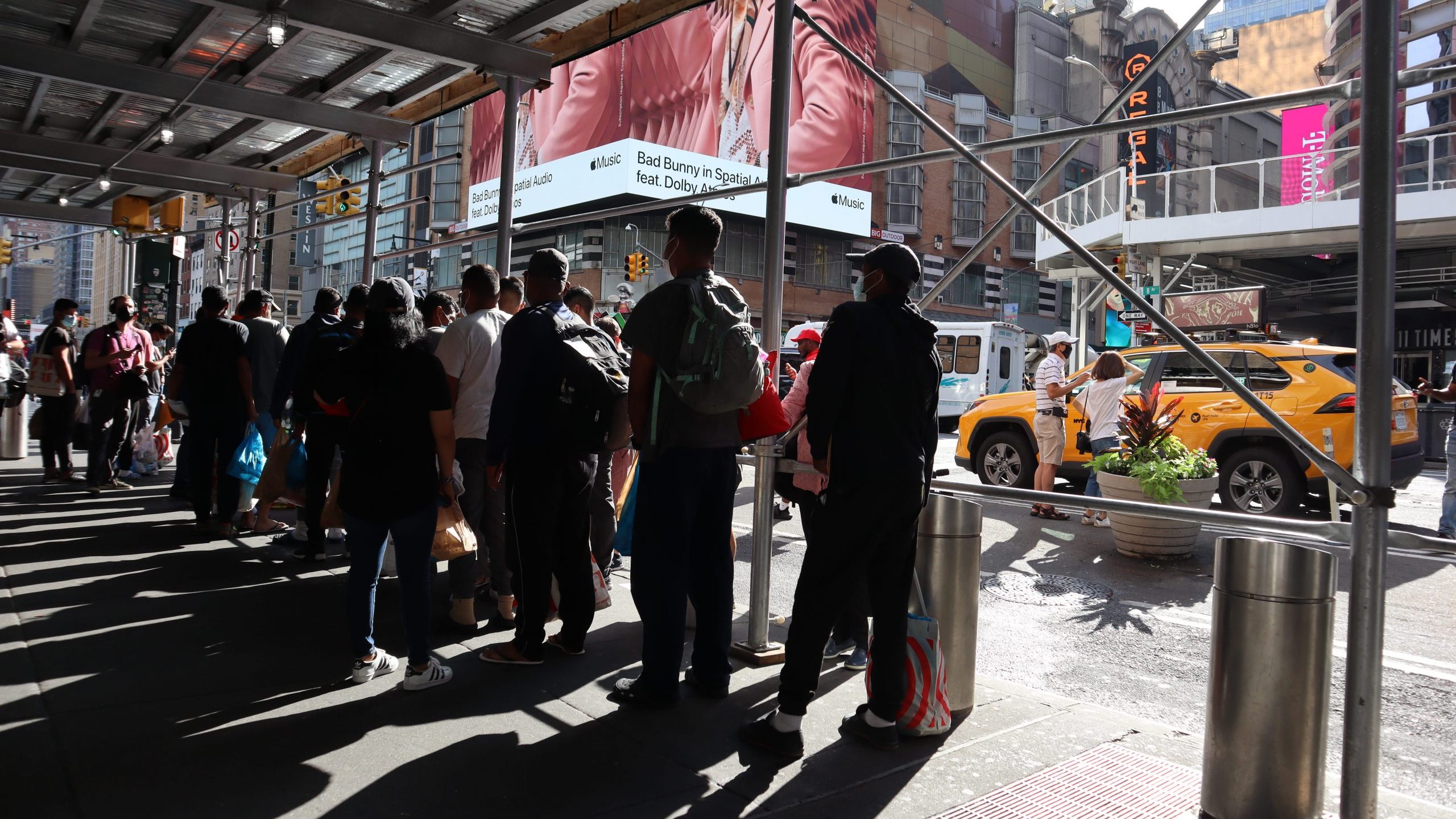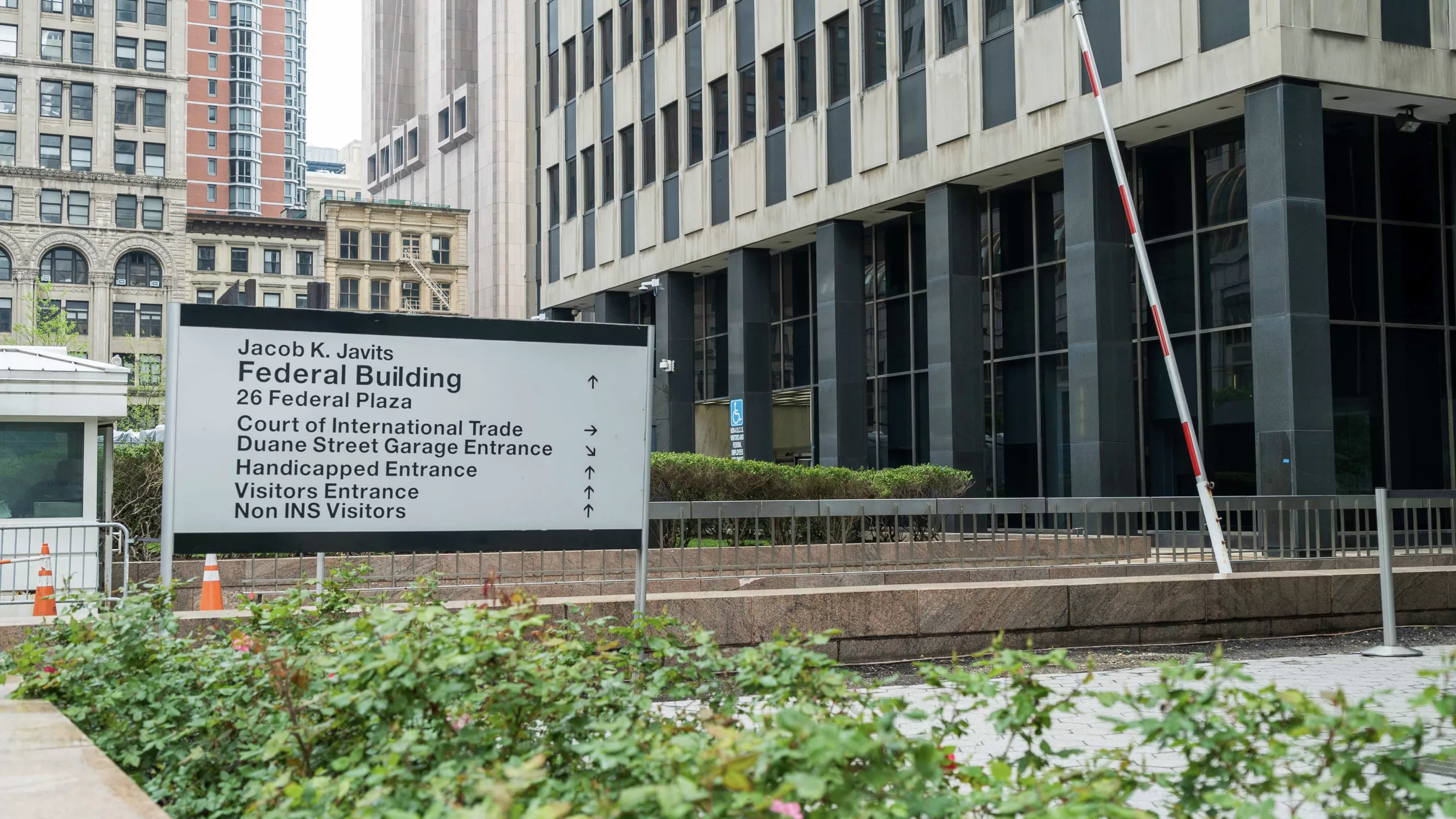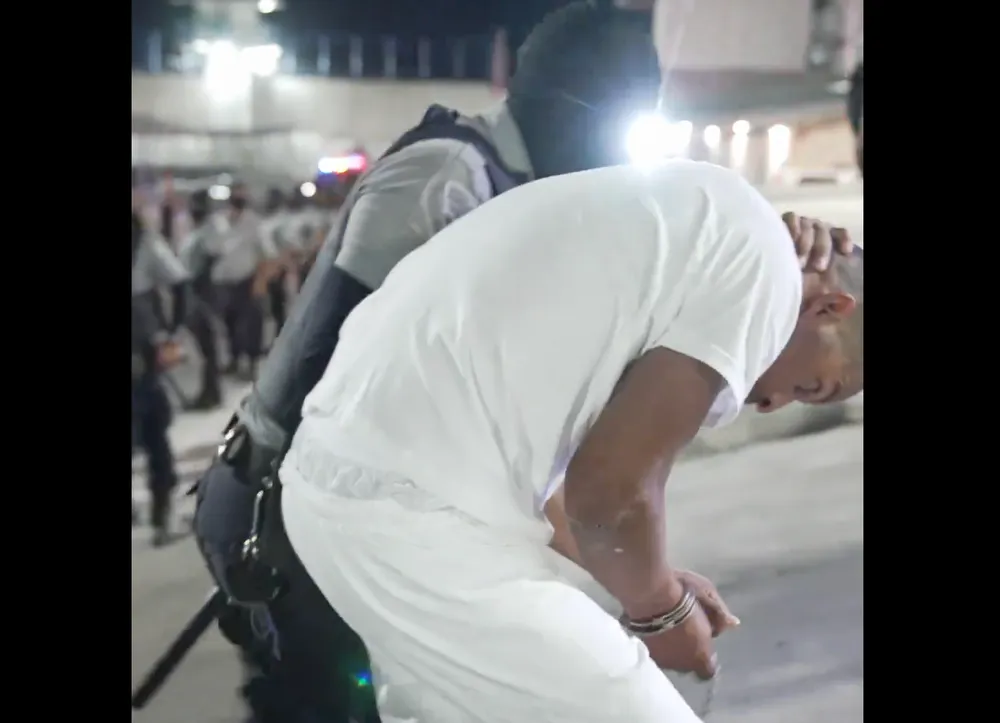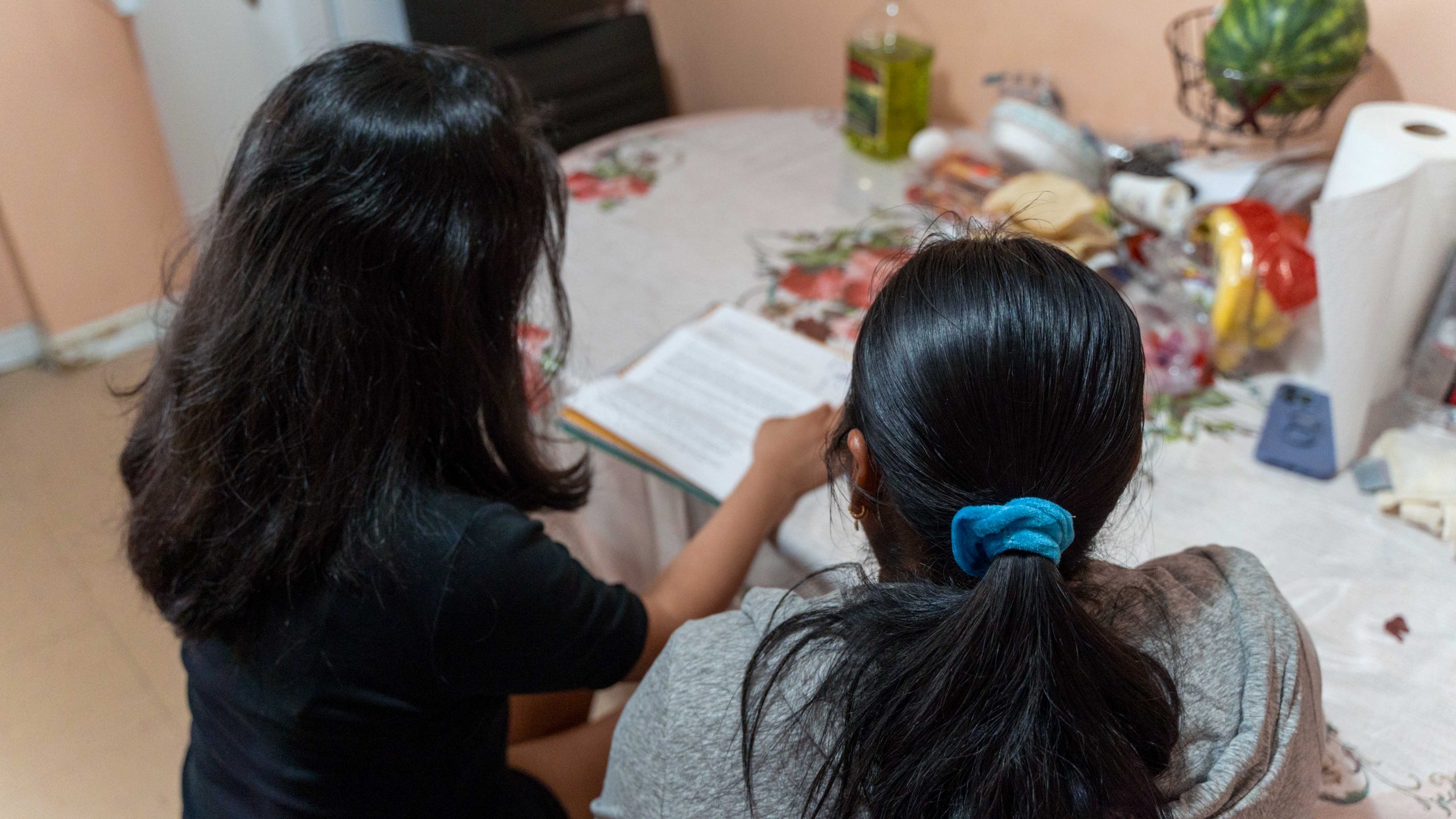For months, City Hall has been continuously appealing to the federal government to expand work authorization for the tens of thousands of migrants who have arrived and sought shelter in New York City since last spring.
On Wednesday, the U.S. Department of Homeland Security (DHS) announced a significant action in that direction: the agency extended and redesignated Venezuela for Temporary Protected Status (TPS) for 18 months, temporarily shielding Venezuelans who have arrived in the U.S. before July 31 from deportation – and giving them a chance to obtain work permits. Secretary of Homeland Security Alejandro N. Mayorkas announced the move “due to extraordinary and temporary conditions in Venezuela that prevent individuals from safely returning,” DHS said in a statement.
“We really want to thank President Biden for hearing our call,” New York City Mayor Eric Adams said at a press conference Thursday, noting that he spoke with the White House Chief of Staff on Wednesday night. “That announcement was well received by us.”
The Department of Homeland Security said that there will be about 472,000 more Venezuelan nationals across the U.S. who will be eligible for TPS under the redesignation. In New York, about 15,000 asylum seekers currently under city care qualify for TPS, Adams said Thursday. There are more than 60,400 asylum seekers in the city’s housing system, according to City Hall.
But Adams urged caution in over-estimating the number of migrants who may actually receive work authorization from the redesignation. Out of the 15,000 eligible migrants in city care, 5,500 are underage and would not be able to obtain work permits, Adams said. And about 75% of all migrants currently in city care are ineligible for TPS, Adams said, while approximately 10,000 migrants are still arriving in New York each month. And those who arrived in the U.S. after the cutoff date do not qualify.
“There’s a real spike at the border,” Adams said. “Now, we must deal with this 45,000 that remain, and the 10,000 that we are getting every month, so that we do not financially harm this city.”
Through TPS, migrants can receive work authorization 30 days after filing their application – instead of dealing with the 180-day waiting period for work permits that comes after submitting often-complex asylum applications.
New York Gov. Kathy Hochul said in a statement that she has directed the New York State Department of Labor to connect employers with newly eligible asylum seekers, mobilizing more than 70 state personnel to assist in the effort. Hochul told reporters that she spoke with President Biden this week about the need for work authorization, and called the move to extend TPS “an important first step.”
Immigrant advocates across the city embraced the Biden Administration’s announcement, but also pushed for increased protections and work permits for migrants of other nationalities. The New York Immigration Coalition said that there are an estimated 60,000 Venezuelans in NYC who have arrived in the last year who would qualify for TPS.
Documented has spoken with migrants from more than a dozen countries in the past year who have come seeking shelter in New York, including individuals from Haiti, Senegal, Ecuador, Mauritania, Peru, and other countries.
“Venezuelans aren’t alone in experiencing the types of conditions that make it difficult to return to their home countries,” Murad Awawdeh, the Executive Director of the New York Immigration Coalition, said in a statement. “We need to continue providing relief to all immigrants seeking safety and security.”
Legal service providers across New York welcomed the federal government’s TPS announcement. But still, some New York legal groups who say they are stretched thin due to various humanitarian crises, expressed concern over their limited resources to assist migrants with TPS — especially since the application has a tight submission deadline. “It feels like we’re racing for everything,” Camille Mackler, the Executive Director of Immigrant ARC (I-ARC), a collaborative of more than 80 legal service providers in New York, told Documented in an interview. Mackler said that TPS was a “huge significant victory,” but noted: “There’s so much pressure being put on us by the state and the city.”













